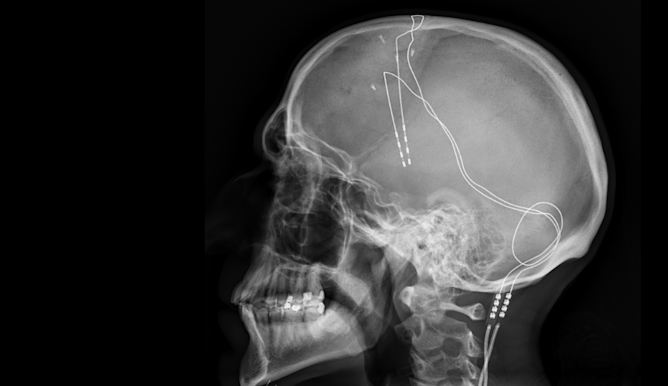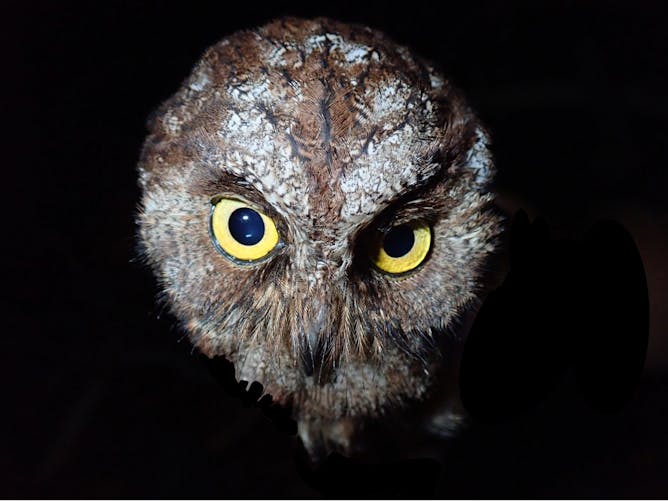|
Mental illnesses such as obsessive compulsive disorder, depression and addiction are notoriously hard to treat and often don’t respond to drugs. But a new wave of treatments that stimulate the brain with electricity are showing promise on some patients and in clinical trials. In the latest episode of The Conversation Weekly podcast, we talk to three experts and one patient about the often disturbing history of treating mental illness, and discover how new technology and a deeper understanding of the brain are presenting possible new approaches to a range of conditions.
As the men’s soccer World Cup continues in Qatar, you can follow coverage from across our network here. And a new owl has been discovered. If you want to know what Otus bikegila sounds like, click here. Researchers explain why they’ve recommended it go straight onto the endangered list, but add that its habitat is entirely within Príncipe Obo Natural Park, off the coast of West Africa, and that this will hopefully
help secure its protection.
|

In deep brain stimulation, electrodes – the pale white lines – are implanted into a patient’s brain and connected to a battery in a person’s chest.
Jmarchn/Wikimedia Commons
Daniel Merino, The Conversation; Gemma Ware, The Conversation
Deep brain stimulation and trasncranial magnetic stimulation treat mental illness by sending electrical currents into parts of the brain. Every new patient provides researchers with a wealth of information. Listen to The Conversation Weekly podcast.
|

Men’s soccer has had a problem with allyship long before Qatar was awarded the hosting rights for this year’s World Cup.
(AP Photo/Ricardo Mazalan)
Gabriel Knott-Fayle, University of Calgary; Michael Kehler, University of Calgary
To make men’s soccer a more inclusive space, organizers and players must put allyship above profits and winning.
|
|
|
-
Daniel Hough, University of Sussex
Fifa has enacted little change to its culture to ensure corruption doesn’t occur again.
|
|

Bárbara Freitas, Museo Nacional de Ciencias Naturales (MNCN-CSIC); Angelica Crottini, Universidade do Porto; Martim Melo, Universidade do Porto
At the beginning there was an unknown noise… Decades later, we discovered a new species of owl.
|
|
|
-
Daniel Hough, University of Sussex
Fifa has enacted little change to its culture to ensure corruption doesn’t occur again.
-
James Cheshire, UCL; Michael Batty, UCL
Quite how to gauge the size of a city – or where one ends and the next begins – is getting harder to determine. The 21st century belongs to the limitless city.
-
Henning Melber, University of Pretoria
The erasure of indigenous people living in Windhoek before the German colonisers arrived has angered activists.
-
Dmitriy Sergeyev, Bocconi University
Ukraine seemed to have recovered well from COVID and its economy was forecast to grow strongly. But then Russia invaded.
-
Tessa Dwyer, Monash University; Radha O'Meara, The University of Melbourne
The announcement that Amazon would rescue the beloved Aussie soap overturns many expectations about television in the age of streaming.
|
|